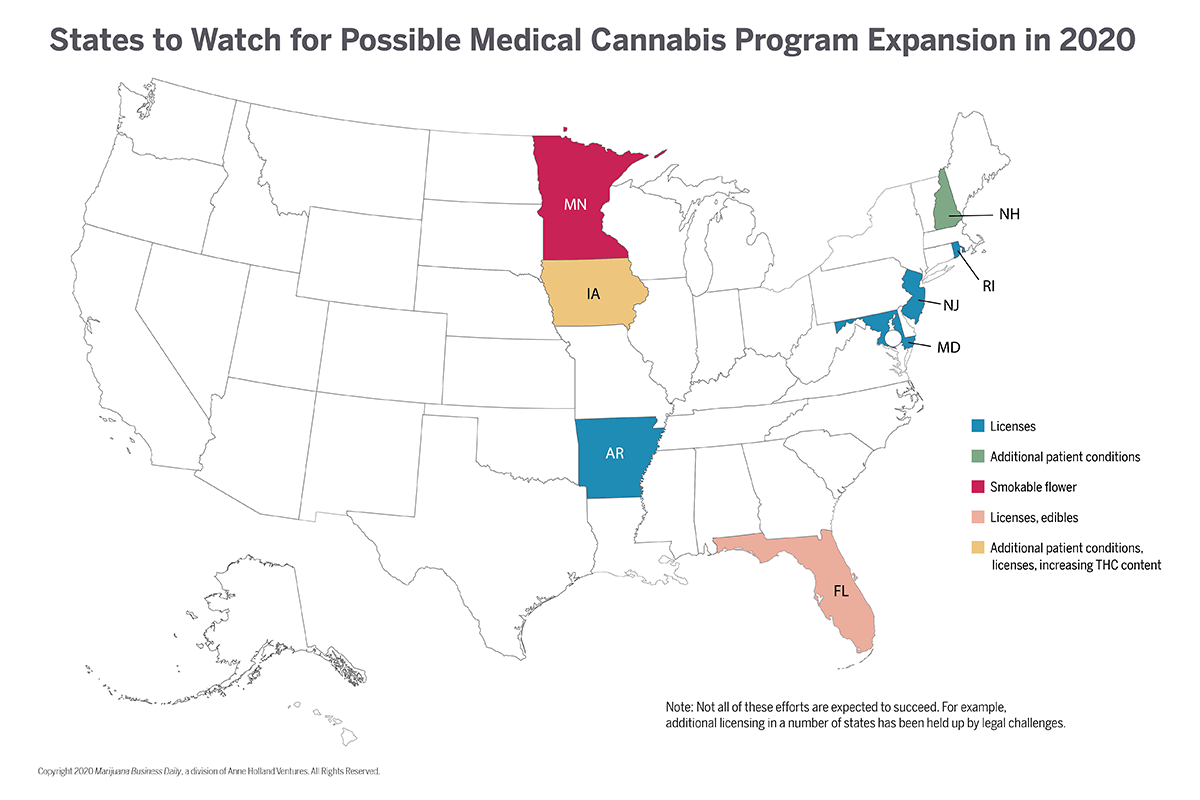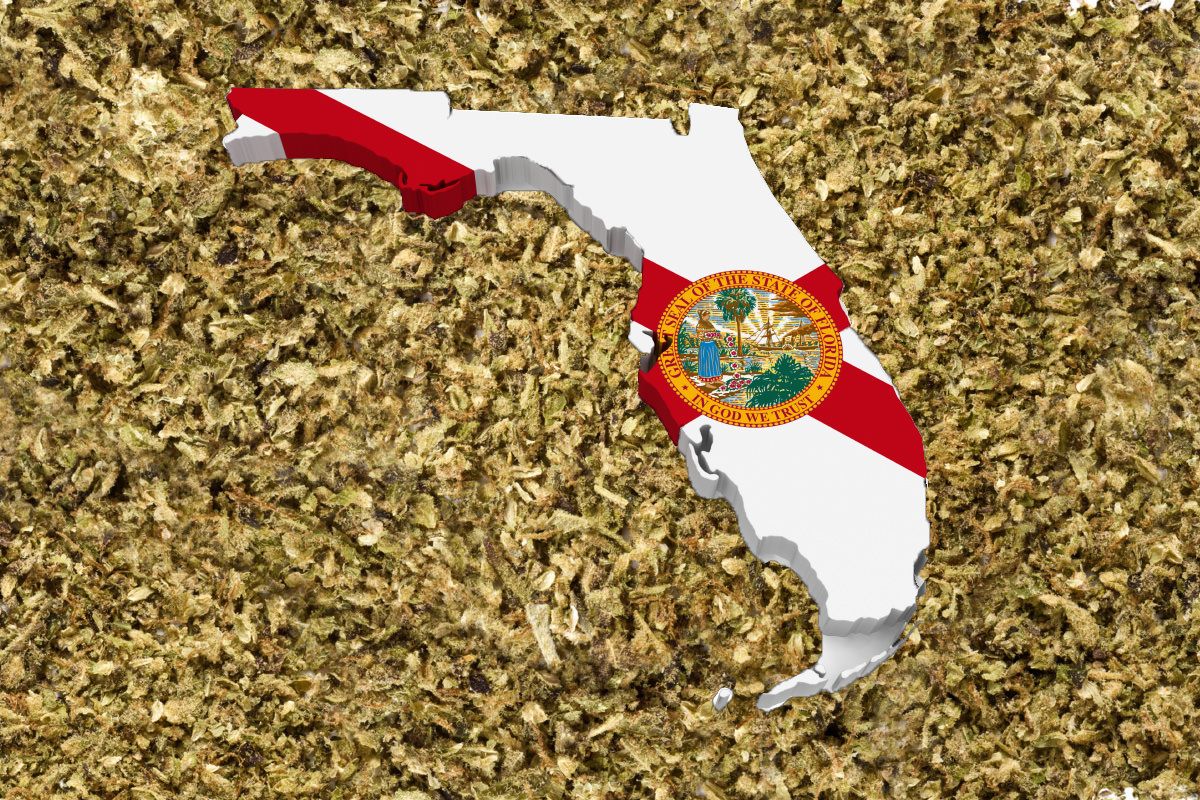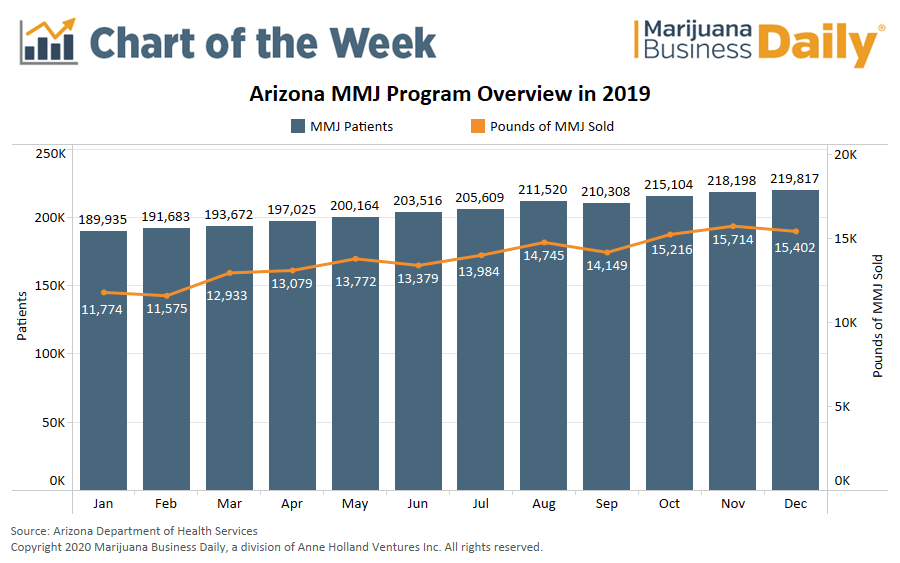Lawmakers in several states have sought to limit the amount of THC in cannabis – moves that, if successful, would likely result in costly business adjustments, loss of sales to illicit markets and other disruptions.
Marijuana industry officials fighting back against the limitations say the proposals are based on questionable science, including a controversial study that suggests a correlation between high-potency marijuana and psychosis.
Industry watchers predict the efforts to cap THC at levels of 10% and even lower will likely fail this year. Some states have already watered down proposed measures or abandoned them.
THC limitations proposed nationwide
“There is clearly an agenda taking place with the same speaking points in multiple states,” said Todd Beckwith, director of corporate affairs at AltMed Florida, a medical marijuana operator with 18 dispensaries in the state.
AltMed is part of an industry effort fighting various proposals in Florida, in part by alerting and encouraging customers to voice concerns to local representatives.
He cited one striking example of a witness at a Florida legislative hearing referring to a 19th century study at a mental asylum in British colonial India that concluded excessive use of cannabis exacerbates mental issues.
The witness, a Harvard University Medical School professor of psychobiology, alleged links between cannabis use and cognitive impairment and mental illness in her presentation at the Florida House Health & Human Services Committee last October.
Here is a look at some of the recent efforts to cap THC content:
- Florida’s speaker of the House wanted to cap THC in medical marijuana at 10%. A similar effort failed last year. A measure in the Florida House would limit THC to 10% for patients younger than 21, with some exceptions such as terminal illness. The Florida House voted Thursday to include the measure in a broader health care package, but it is expected to run into resistance in the state Senate.
- Arizona lawmakers introduced a bill in February that would limit THC content to 2% in medical cannabis. That provision has since been withdrawn.
- Washington state lawmakers introduced a bill to cap concentrates at 10% THC. Opponents are trying to prevent it from advancing out of a House committee.
The issue of limiting THC in marijuana is being discussed in other states such as Colorado. A similar effort in Colorado has failed before.
In addition, U.S. Sen. Michael Crapo, chair of the powerful Senate Banking Committee, recently indicated that he’s considering a 2% THC cap on cannabis products for businesses to be eligible for financial services under proposed cannabis banking reform.
Karen O’Keefe, director of state policies for the Marijuana Policy Project, called the initial efforts in Florida and Arizona to cap THC content across the board “outrageous.”
“They come on the heels of other attempts by lawmakers in both states to try to undermine voter-enacted medical cannabis protections,” O’Keefe wrote in a recent email to Marijuana Business Daily.
For example, despite 71% of Florida voters approving medical marijuana in 2016, lawmakers banned smokable flower and reversed course only after courts ruled their ban was unconstitutional.
Smokable flower sales, which finally started in March 2019, account for about 65% of Florida’s MMJ market.
AltMed said a 10% cap across the board would have required MMJ companies to destroy inventory and restart their genetic programs.
“No one is cultivating cannabis below 10%,” Beckwith said, noting that many patients of the state’s 317,000 registered patients would turn to the illicit market if caps are put in place.
A 10% THC limit for patients younger than 21 isn’t as onerous but still would be costly in terms of the research, development and regulatory approvals needed to bring additional products to the market that fit the criteria, he said.
A ‘slippery slope’
“We really see this as a slippery slope,” Beckwith said. “This is a political play. They tried to cap smokable cannabis, and now they’re doing this under the guise of protecting children.”
Florida has many young patients who use higher THC levels for severe epilepsy, leukemia and other conditions. Those dosing decisions, industry officials said, should remain between the patient’s family and physician.
David Mangone, a Washington DC lobbyist and former government-affairs director for Americans for Safe Access, a nonprofit that focuses in part on medical cannabis research, had similar concerns with the THC proposals.
He wrote in a recent email to MJBizDaily that Arizona’s 2% cap proposal would have decimated the existing MMJ market.
“Caps, particularly on concentrates, are problematic as they encourage producers to use additives and dilutants to meet limits,” Mangone added.
“The role of vitamin E acetate in the vaping crisis serves as evidence of the problems associated with additives.”
The various efforts to cap THC content appear to stem in part from a controversial study published in The Lancet medical journal in May 2019 and the equally controversial 2019 book, “Tell Your Children: The Truth About Marijuana, Mental Illness and Violence.”
The study in The Lancet looked at about 900 patients with first episodes of psychosis at 11 sites in Europe and Brazil between 2010 and 2015.
Researchers found that the use of marijuana with THC potency above 10% “modestly increased the odds of a psychotic disorder” compared to a group that never used cannabis. The odds were slightly greater for those who had started to use cannabis at age 15 or younger.
Beckwith characterized The Lancet’s study as scientifically invalid because it didn’t prove cause and effect.
He and others cite studies that show that smoking flower with high THC helps relieve pain.
For example, a study published in Scientific Reports in February 2019 found that smoking flower with high-potency THC resulted in greater relief of symptoms such as anxiety, back pain and depression.
Wrote O’Keefe: “Some of the most medically fragile patients use the highest potency cannabis. Requiring them to use lower potency just means they have to administer more times.”
Jeff Smith can be reached at jeffs@mjbizaily.com







